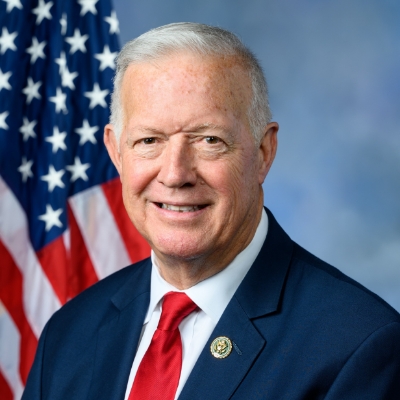- Home
- About
- Contact
- Services
- Art Competition
- Community Project Requests
- Congressional Commendations
- Flags
- Assistance with a Federal Agency
- Internships
- Military Academy Nominations
- Passports
- Presidential Greetings
- Tours and Tickets
- The Congressional Award
- Grants
- Water Resources Development Act 2026
- Additional Services and Resources
- Media
- Legislation
- Issues
- Resources
 U.S. REPRESENTATIVE
Randy Weber
Proudly Serving Texas' 14th District
U.S. REPRESENTATIVE
Randy Weber
Proudly Serving Texas' 14th District
Press Releases
Rep. Weber Provision Adopted in Surface Transportation Bill
Washington,
June 18, 2020
Washington, D.C. - June 18, 2020, U.S. Rep. Randy Weber (TX-14) secured adoption of a provision to preserve federal funds for local transit systems after a natural disaster, during Wednesday’s markup of a surface transportation bill in the House Committee on Transportation and Infrastructure. The Weber amendment was adopted by unanimous consent, with the vocal support of T&I Committee Chairman Peter DeFazio (D-OR). Weber successfully amended the proposed surface transportation legislation, often referred to as the “highway bill.” That bill, the “Investing in a New Vision for the Environment and Surface Transportation” (INVEST) in America Act, seeks to reauthorize the nation’s transportation programs that would otherwise expire on September 30, 2020. “My amendment waives minimum population requirements for smaller Urbanized Areas (UZAs)—like Galveston and Port Arthur—if their population dips below 50,000 after a natural disaster. When that population loss occurs just before the decennial census, before the residents have the opportunity to return or rebuild, it can have a prolonged effect—adding insult to injury in the wake of a catastrophic event. Even though their populations might recover shortly after the intervening census is completed, they’d be ineligible until the next census, up to ten years later. “Federally designated UZAs, areas with population of 50,000 or greater, are eligible for a greater proportion of federal funds, including those allocated by the Federal Transit Administration (FTA). Smaller communities, with less than 50,000 people, are designated as rural. While they are still eligible for federal funds, they are required to apply through the state, rather than receiving apportionments directly from the federal government. “This amendment is critical for some communities in TX-14 and others just like them around the country. In 2008, when Hurricane Ike hit Galveston, it precipitated a population drain from 57,000 residents to 47,000, just ahead of the 2010 decennial census. Without UZA status, Galveston lost $750,000 in FTA funds. Similarly, in 2017, Hurricane Harvey hit Galveston and Port Arthur. With my amendment, Galveston and Port Arthur - each having their own transit programs –would not relinquish their UZA status. Without my amendment, these communities would lose much-needed formula funds for as much as 10 years, until the next decennial census. Not only do we need to ensure our communities are prepared for when natural disasters strike, but we must also ensure that they are not unintentionally penalized.” |
